Race Against WW II Shipwrecks Oil Spill
A remediation programme to protect island ecosystems from damage caused by oil pollution from World War II wrecks sunk in the Pacific Ocean will launch in Newcastle Harbour today (Thursday 23 May).The programme is the result of a partnership between Major Projects Foundation, the Secretariat of the Pacific Regional Environment Programme (SPREP) – an intergovernmental Pacific regional organisation made up of 26 members – and the University of Newcastle. It will see expert teams of scientists, engineers and marine archaeologists work with Pacific island communities to meet the challenges posed by the degradation of wrecks.There are in excess of 3…
Oil-hungry Bacteria Could Clean Up Next Big Oil Spill
Heriot-Watt scientists have cracked the genetic code of the marine bacteria which helped ‘eat’ the oil spilled in the Deepwater Horizon disaster, information which could aid clean-up efforts for any future major spill. Dr Tony Gutierrez, Associate Professor of Microbiology at Heriot-Watt, was in the US at the time of the disaster and was able to perform experiments with samples from oil-contaminated waters of the Gulf of Mexico shortly after the spill occurred, samples that contained key species of bacteria that fed on the oil. Experiments with the samples revealed that certain bacteria had thrived on the oil that gushed into the Gulf, devouring the oil as a preferred food source.
Galley Grease Harms Equipment – and the Environment
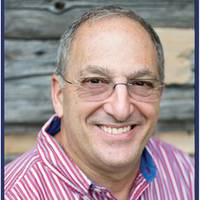
Cleaning up the wastewater stream on marine vessels isn’t just about removing hydrocarbons out of oily separators and bilges. Workboat galleys harbor a tremendous amount of FOGs (fats, oils and grease) that, if not properly disposed of, can be a health risk, damage equipment and add to overall operational costs. Even if vessels are equipped with sophisticated grease trap systems, the introduction of nontoxic, neutral pH biologic compounds into the trap and/or waste stream is a necessary step to reduce toxic buildup and environmental pollution.
Gray Water & Bilge Water: Taking Steps to Clean Up the Ocean Environment
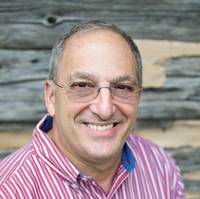
The fact that improperly-treated gray water pollution is still being dumped off ships in a so-called modern and highly-regulated shipping industry is hypocritical at best. Graywater – which comes from ship accommodation areas (shower/sink), laundry, galley and food pulper – can contain classical pollutants such as nonylphenols, metals, nutrients, surfactants, pathogens, oil, grease, detergent and soap residue. Graywater is sometimes mixed with sewage, depending on the ship design. Graywater can have varying levels of harmful contaminants.
Keep it Clean & Green
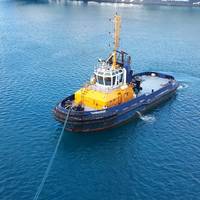
When dealing with oil and other hazardous contaminants on vessels and in marine facilities, there are some common misconceptions about the way hydrocarbons biodegrade. “The words biodegrade and bioremediate are not interchangeable,” said Jay H. Murland, CEO of EnviroLogic Biobased Technologies Inc. who manufacturer a line of over 30 EPA-approved bioremediation products. To explain further, let’s look at the difference between the processes of bioremediation, bioaugmentation and encapsulation. • Bioremediation occurs naturally all over the earth.
Bioremediation Goes Mainstream
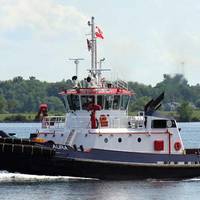
A reliable solution for response and prevention that can save money, time and regulatory aggravation is here. The threat of oil pollution has long been a problem in the shipping community. You don’t have to look too far to review the myriad of oil spills that have plagued the industry. The Exxon Valdez spill that occurred 25 years ago has recently come to the forefront once again as there is evidence that the ramifications of the spill are still being felt in the fragile eco-system of several Alaska beaches.
Mariner's Choice Pushes Bioremediation
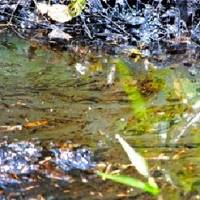
Mariner's Choice International, Inc., a North American manufacturer and marketer of an extensive line of ecologically-safe products for the marine and other industry segments, announced that they are pushing forward with their business development in the bioremediation sector. Mariner's Choice has been working with a number of environmental engineers to have MUNOX SR included in bioremediation project bids. Over the past few weeks, through its direct efforts, MUNOX(R) has been included in six bids in the U.S., Canada and the Caribbean.
EnSolve Introduces ShoreClean for Gulf Spill
EnSolve Biosystems, the world leader in maritime bioremediation technology, has introduced a new line of products designed to facilitate cleanup of oil from shorelines, beaches, marshes and open waters. The EnSolve ShoreClean products are designed to release concentrated levels of naturally occurring oil-degrading microbes and nutrients into the waters and beaches along the contaminated shoreline. The microbes break down the particles of oil, converting it to water and trace amounts of carbon dioxide. Dr. Jason Caplan, CEO of EnSolve, said “The ShoreClean products are derived from our proven U.S. The ShoreClean products include booms and bags, which are filled with oil-consuming microbes and slow-release nutrients.
USARC Calls for Arctic Oil Spill Research
The U.S. Arctic Research Commission believes that the U.S. needs a robust research program to address spill response in broken ice, as shipping moves into the Arctic Ocean and offshore oil drilling - in several Arctic nations - moves forward. Mead Treadwell, chair of the U.S. Arctic Research Commission, prepared testimony for the August 20 field hearing in Anchorage of the U.S. Senate's Homeland Security Subcommittee of the Senate Appropriations Committee. Treadwell told the committee that, contrary to laws passed by Congress after the Exxon Valdez oil spill disaster in 1989, a significant national oil spill research program does not exist, nor is one planned to fit the special needs of the Arctic. It was anticipated that the U.S.
Ballast Water Treatment Through Biodispersion
The process of bioremediation of waste oil through patented biodispersion technology, consists of a breakthrough in ballast water treatment, which has been discovered via research based on the evaluation of SpillRemed (Marine), which was developed on the basis of biodispersion technology for remediation of bilge water on boats and ships in an effort to develop an environment friendly solution to the problem of operational discharges by ships. A study was conducted on board cruise ships equipped with oil water separators. SpillRemed (Marine) is considered a suitable replacement to chemical dispersants. Although in volumes as large as found on such ships…
Ensolve Biosystems' Senior Scientist Receives Top Honor
Dr. Donald W. Kelemen, senior scientist of EnSolve Biosystems, has been selected as an honoree for the 2000 American Chemical Society's Industrial Innovation Awards Program. Dr. Kelemen is a co-founder of EnSolve Biosystems and played an instrumental role in the development of the PetroLiminator, the first biomechanical oily water separator for the marine industry. The PetroLiminator is a patented system that uses a combination of mechanical separation and bioremediation to treat bilge water so that it can be safely discharged overboard in environmentally sensitive waterways. Introduced in early 2000, the PetroLiminator has been type approved by the U.S. Coast Guard, IMO and Canadian authorities to meet international clean-water standards.
Bioremediation Products Demonstrated to USCG
The U.S. Coast Guard recently received a demonstration of two Spillaway brand bio-remediation products, which contain live bacteria or spores that "eat" oil and fuel. Spillaway products are distributed by MEM International. Bio-remediation uses naturally occurring microorganisms to degrade harmful chemicals into non-toxic compounds. Microorganisms break down a wide variety of organic compounds that are found in nature to obtain energy for their growth. In particular, these organisms will break down petroleum hydrocarbons and transform them into carbon dioxide and water. Bio-remediation harnesses this natural process by promoting the growth of microorganisms that can degrade contaminants and convert them into non-toxic by-products. The bio-remediation process is natural.
Biodispersion Is Viable Option for Floating Oil Treatment
It is estimated that as much as 30,000 tons of oil enter the seas every year, with about 62 percent coming from the industrial sector and 22 percent from ships. The marine industry, in particular, has worked fastidiously over the past 10 years - driven in large part by OPA 90 and other regional, national and international legislative measures - to ensure that oil never enters water. In order to clean up these aqueous environments, there is a need for a technology that is non-invasive, less labor intensive and cost effective. Any solution should: Be fast acting - remediation should take place in days or hours and not in months; not disturb the existing ecosystem…
Ensolve to Supply PetroLiminator for Reserve Fleet
EnSolve’s PetroLiminator System Uses Patented Bioremediation Technology to Remove Emulsified Oil EnSolve Biosystems has been awarded a contract from the U.S. Maritime Administration (MARAD) to supply a PetroLiminator Oil Water Separator for treating bilge water from its fleet service craft at the Suisun Bay Reserve Fleet, Calif. The patented PetroLiminator system uses a three-stage process to treat the oily water. In the first stage, free-phase oil is separated and removed to a collection tank, where it can be recycled or burned. In Stage II, the oily water passes through a bioremediation chamber containing hydrocarbon-degrading microbes, which consume the emulsified oil droplets.
WSF Cuts Costs With Oily Water Separator Refit
Washington State Ferries, a company that operates on routes with tremendous environmental concern and legislation, recently refit one of its ferries, Nisqually, with a bio-enhanced Oil Water Separator solution from ECP Service Corp. The Washington State Department of Transportation operates one of the largest passenger and automobile ferry services in the world, with 29 vessels capable of generating between 2,000 to 3,000 gallons of oil water in the vessels' bilge each month. The company sought a solution that would reduce or eliminate disposal cost, improve oily water separator efficiency and create a more environmentally responsible operation.





